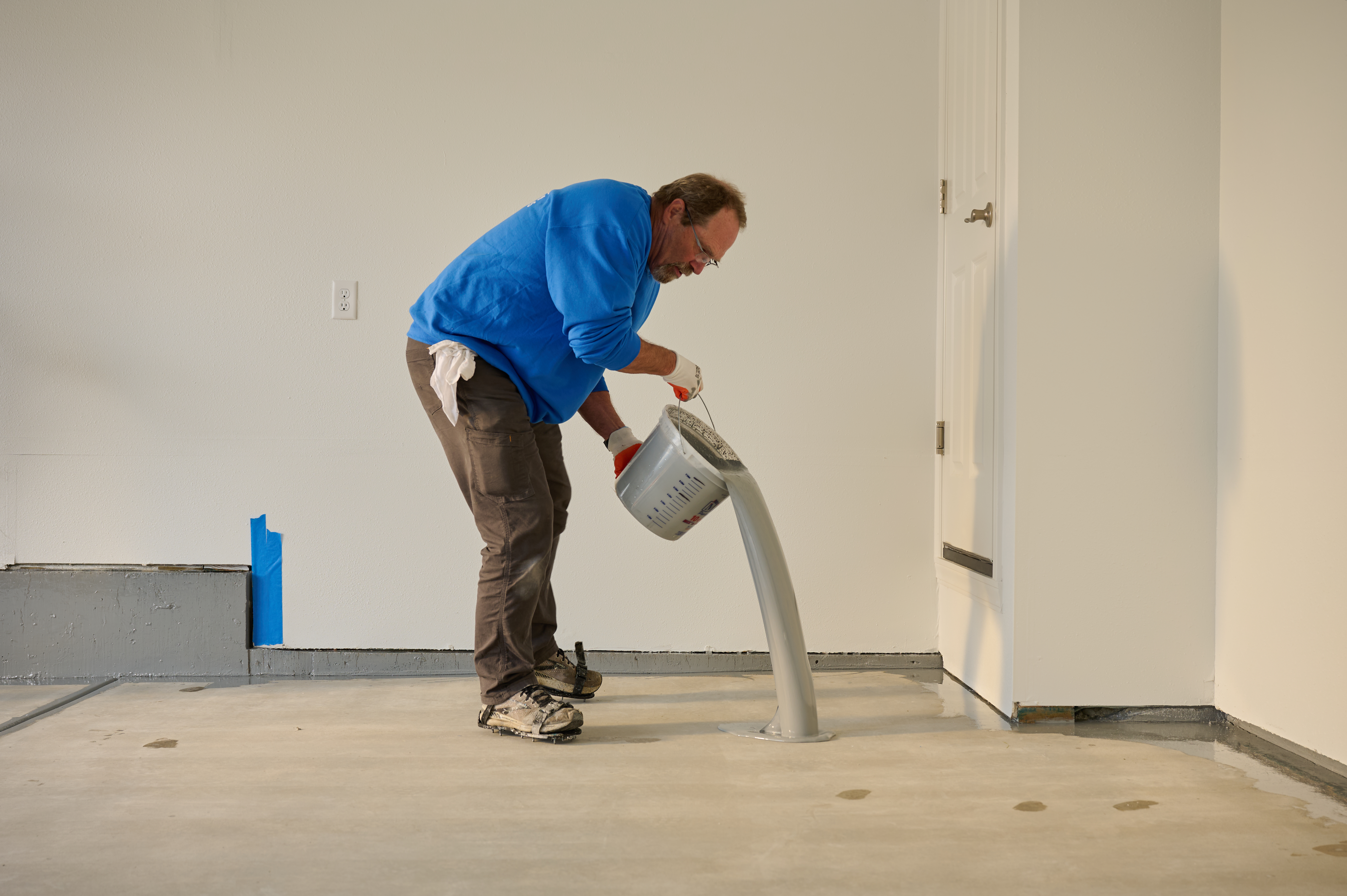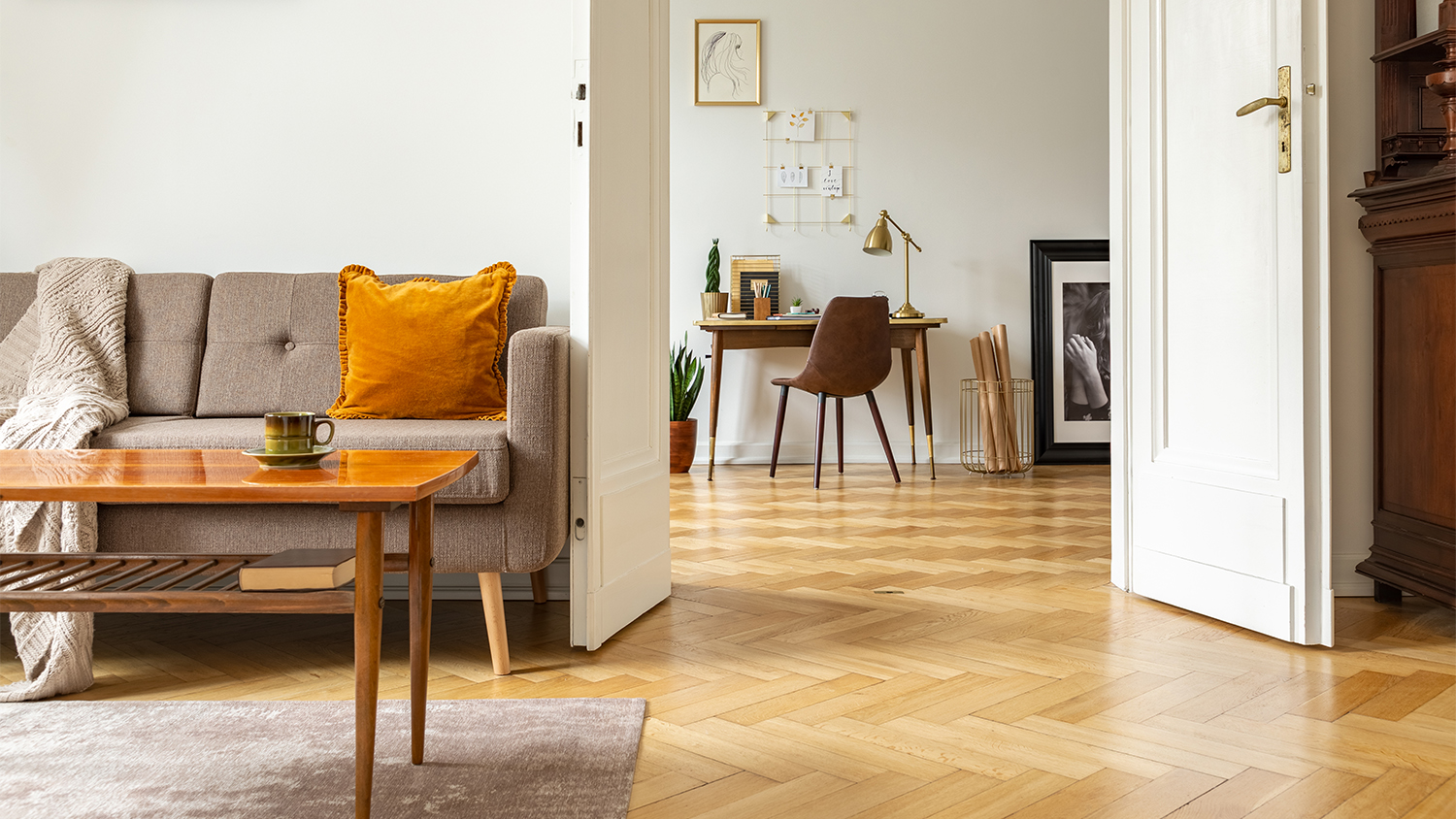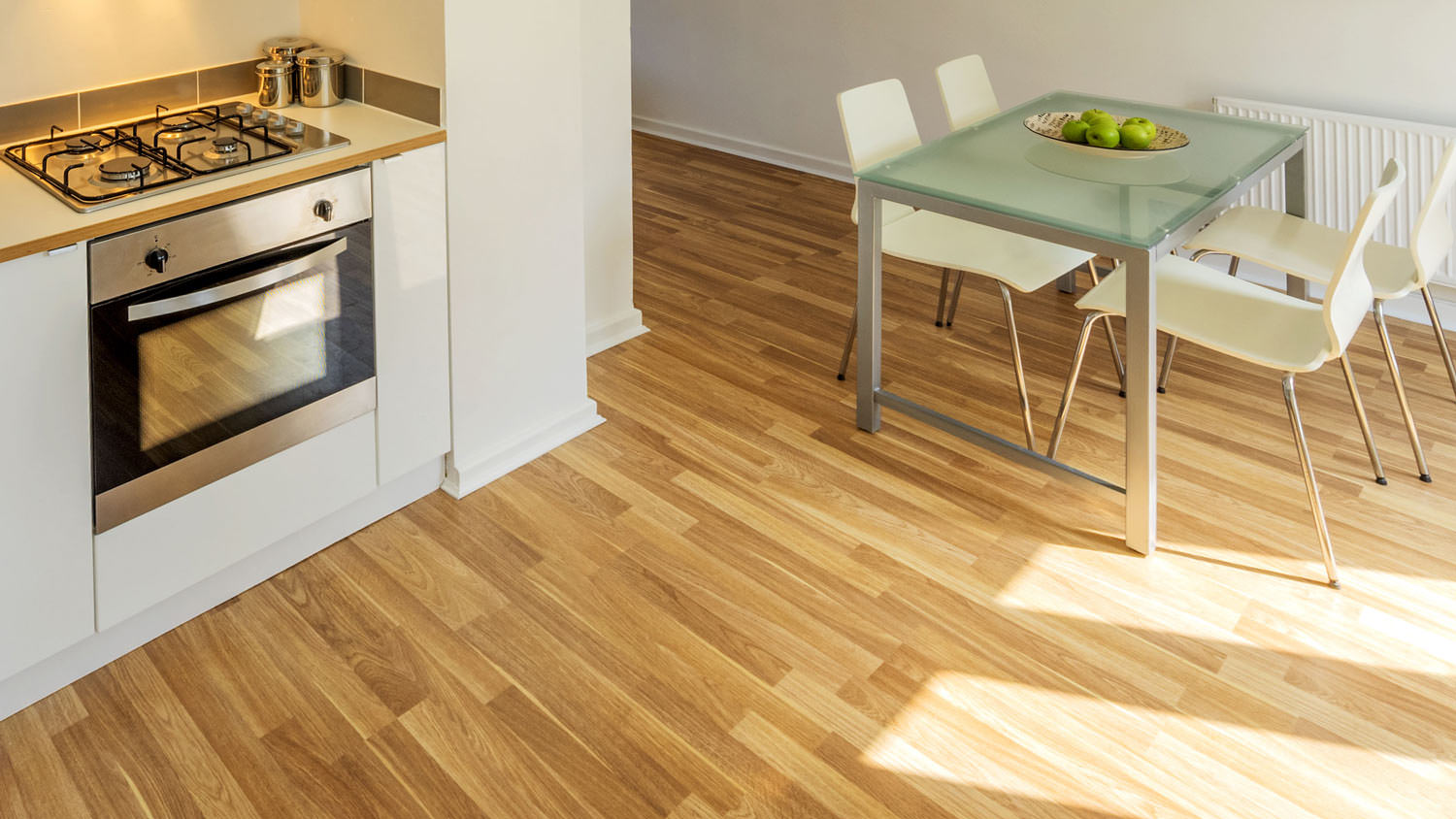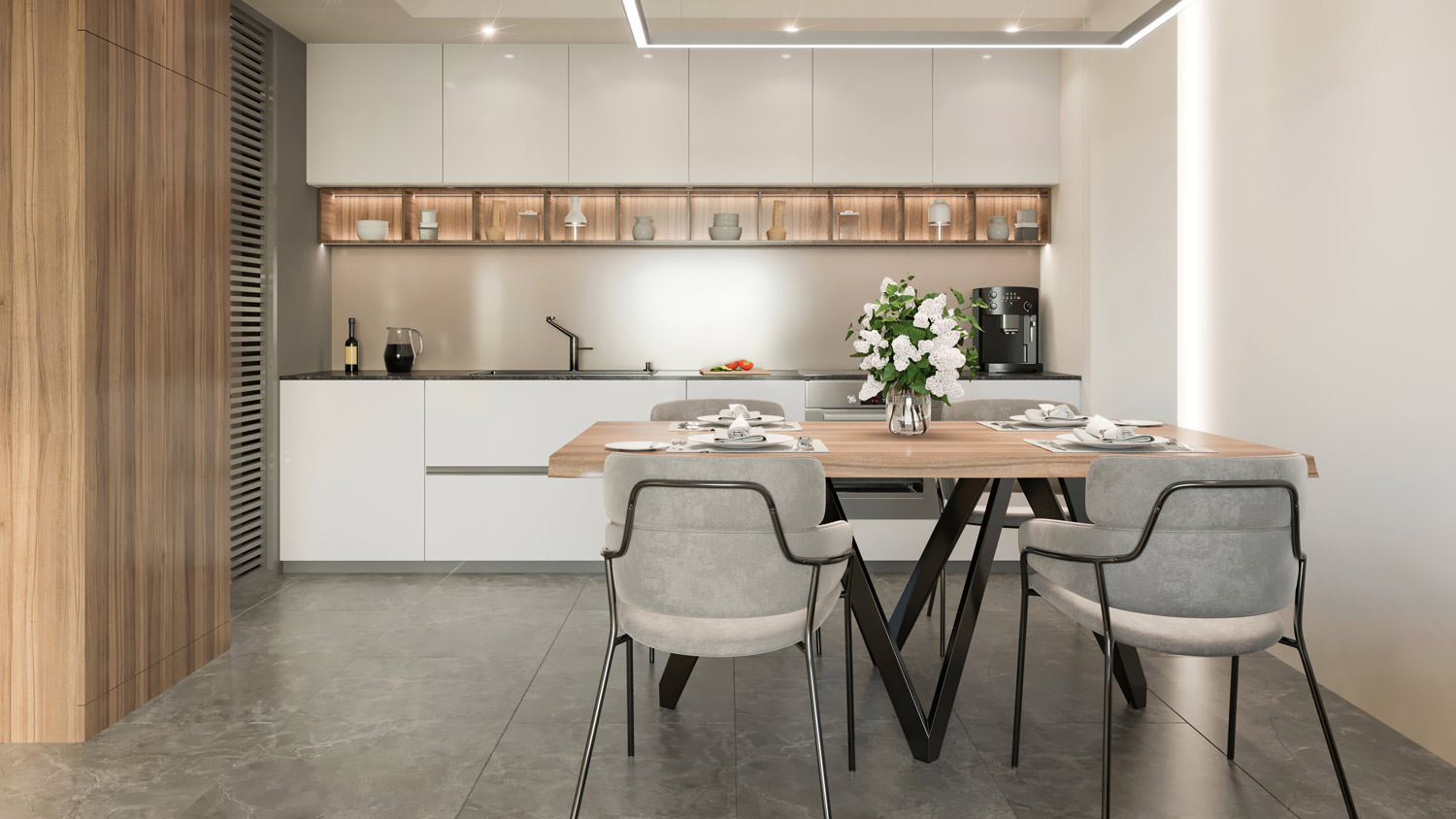
Polished concrete floor costs depend on the size of the area you’re targeting and the style of concrete floor. Our guide breaks down all the cost factors.
Flooring costs depend on your project and location. Check with a local pro for your specific job.
Granite flooring costs an average of $7,500 to install, with prices ranging from $4,000 to $32,000.
Installation costs depend on the room size, type of granite, and labor.
Custom patterns, subfloor prep, and demolition can increase costs.
Professional granite flooring installation ensures quality and maximizes home value.
Proper maintenance extends the life and beauty of granite floors.
This article was created using automation technology and thoroughly fact-checked and edited by an Angi Editor in accordance with our AI policy.
The average cost of granite floor installation is $7,500, with most homeowners spending between $4,000 and $12,000. Prices range from $10 to $40 per square foot, depending on the quality of the granite, labor costs, and the complexity of the project. Understanding these costs helps you plan your granite flooring project with confidence.
Granite’s natural beauty and durability make it a popular choice for high-traffic areas. Labor ranges from $5 to $15 per square foot, depending on your location and the complexity of the job.
The size of your project is the single biggest factor in granite floor installation cost. Total square footage directly affects material and labor expenses, so larger areas cost more overall.
Kitchens, bathrooms, entryways, and even whole-home installations each present different cost profiles.
Installers may charge a minimum project fee, especially for small spaces, while bulk pricing or volume discounts may apply to larger jobs. Cost per square foot includes both materials and installation, but always confirm with your contractor.
| Room/Area Type | Average Size (Sq. Ft.) | Average Cost | Cost Range |
|---|---|---|---|
| Bathroom | 40 | $600 | $400–$1,600 |
| Kitchen | 150 | $2,250 | $1,500–$6,000 |
| Entryway | 60 | $900 | $600–$2,400 |
| Whole-home (main areas) | 800 | $12,000 | $8,000–$32,000 |
Larger projects may qualify for discounted rates per square foot, while installers may charge flat minimums for very small spaces. Always ask about project minimums and potential volume discounts.
Several factors contribute to the total cost of granite floor installation. Let’s break down the main factors so you can plan your budget with clarity.
Granite floor installation is a specialized task often handled by tile installers, flooring contractors, or stone specialists. Labor rates for granite flooring range from $5 to $15 per square foot, or $50 to $100 per hour. Small projects might face minimum labor fees, raising the cost per square foot for bathrooms or small entryways. Regional labor costs can also vary, with higher rates in urban centers or areas with a high cost of living.
Project complexity has a major impact on labor costs. Custom patterns, detailed layouts, or inlays require more time and skill, resulting in increased labor hours and a higher total price. Tasks like subfloor preparation, demolition of old flooring, and post-installation cleanup are often included in the quote, but always review your estimate for clarity.
Permits are sometimes required for granite floor installation, especially if structural changes are involved or in multifamily buildings. Permit costs range from $50 to $300, depending on your municipality.
Contractors often handle the permitting process, but homeowners should confirm this before work begins. Failing to obtain required permits can result in fines, delays, or complications with future home sales.
Upgrades and customizations can quickly raise your granite floor installation cost. Custom patterns, borders, mosaics, or inlays add both material and labor expenses. Features like heated floors, waterproofing membranes, or soundproofing underlayment also increase the total. Transition strips, thresholds, and matching baseboards are common additions, as are accessibility features such as ramps or flush transitions for universal design.
Beyond the basics, several other factors can affect your final price:
Project complexity: Diagonal or custom layouts are more expensive than a simple grid.
Accessibility: Multi-story homes, tight spaces, or staircases require extra labor.
Site preparation: Removing existing flooring, repairing or leveling subfloors, and installing moisture barriers can add to the cost.
Delivery and handling: Large granite tiles or slabs may involve extra delivery fees.
Cleanup: Post-construction debris removal is sometimes a separate charge.
Design or consultation: Custom layouts may require design fees.
Inspections: Some local codes or homeowners associations require project inspections, adding to your overall expenses.
The cost of granite floor installation extends beyond the initial materials and labor. Consider these ongoing and supplemental expenses as you budget.
Many granite tiles come with manufacturer warranties covering material defects for 10 to 25 years. Installers or contractors may offer workmanship warranties that last one to five years. Extended warranty coverage can add to your upfront cost, but it offers peace of mind. Review the warranty terms to understand what’s covered—most focus on defects, rather than wear and tear or improper maintenance.
Granite flooring requires routine maintenance to look its best. Sealing is recommended every one to two years, costing $1 to $3 per square foot if done professionally, or less if you do it yourself. Cleaning supplies and occasional deep cleans add about $50 to $200 per year. Repairs for chips, cracks, or grout issues range from $200 to $800, depending on severity and the number of tiles affected.
Deciding between DIY and hiring a professional for granite floor installation depends on your skill level, budget, and the complexity of the project.
DIYers can save significantly on labor costs, but should budget for materials, tools, and equipment. Granite tiles, adhesives, grout, sealers, and underlayment can add up quickly. Specialty tools, such as wet saws and leveling systems, may need to be rented or purchased, costing between $40 and $100 per day.
DIY installation requires patience, precision, and some experience with tile work—mistakes can result in cracked tiles, uneven floors, or voided warranties. Plan for a longer installation timeline and be prepared to handle all demolition, disposal, and cleanup yourself.
DIY granite floor installation costs between $6 and $20 per square foot, mostly for materials and tool rentals. Professional installation costs range from $10 to $40 per square foot, inclusive of labor and materials. DIY is practical for small, simple spaces and experienced homeowners. For larger or more complex jobs, or if you want a warranty, hiring a local granite flooring installation pro is the smarter choice.
Sometimes, you may face the choice between repairing and replacing your granite floor. Understanding when each option is most suitable will help you make a cost-effective decision.
Minor chips, isolated cracks, or grout issues can be repaired, especially if the floor is relatively new or under warranty. Full replacement is recommended for widespread damage, subfloor problems, or if the granite is outdated and you want a fresh look. Consider the age of your floor and warranty status—older floors with extensive issues are better candidates for replacement.
Repairing granite floor tiles costs $200 to $800, or $10 to $25 per square foot. Full flooring replacement costs $10 to $40 per square foot, including removal of the old floor and new installation. If repair costs exceed 50% of the price for full replacement, it’s often best to replace the floor.
Granite flooring is a premium upgrade that can significantly increase a home's value and appeal, particularly in high-end markets.
Granite floor installation offers a return on investment of 50% to 70%. It can boost resale value and attract buyers looking for durable, luxurious finishes. Compared to hardwood or ceramic tile, granite is more resilient and unique, though ROI varies by location, home value, and buyer preferences.
Granite floors are fire-resistant and offer good slip resistance with the right finish. Their thermal mass makes them compatible with radiant heating and can help regulate indoor temperatures. Granite is durable, long-lasting, and hypoallergenic, making it a wise choice for busy households. It’s easy to clean and suits a wide range of design styles, from classic to modern.
To keep your granite flooring costs within budget, consider the following tips:
Get multiple quotes from licensed granite flooring pros.
Choose standard granite tile sizes and patterns to reduce waste.
Schedule installation during off-peak seasons for potential discounts.
Handle demolition or removal of old flooring yourself if feasible.
Purchase granite tiles in bulk or from local suppliers to save on shipping.
Opt for simpler layouts to minimize labor costs.
Maintain granite floors properly to avoid costly repairs.
Home is the most important place on earth, which is why Angi has helped more than 150 million homeowners transform their houses into homes they adore. To help homeowners with their next project, Angi provides readers with the most accurate cost data and upholds strict editorial standards. We extensively research project costs to develop the pricing data you see, so you can make the best decisions for you and your home. We rely on reputable sources, including the U.S. Bureau of Labor Statistics, academic journals, market studies, and interviews with industry experts—all to ensure our prices reflect real-world projects.
Want to help us improve our cost data? Send us a recent project quote to [email protected]. Quotes and personal information will not be shared publicly.
From average costs to expert advice, get all the answers you need to get your job done.

Polished concrete floor costs depend on the size of the area you’re targeting and the style of concrete floor. Our guide breaks down all the cost factors.

Pouring a new concrete floor can create new usable space for your home and raise its value. This guide breaks down what affects project costs.
.jpg?impolicy=leadImage)
If your subfloor is damaged and needs replacing, expect the project to require a professional assessment and the proper materials.

Updated flooring can make any room in your home feel brand new. Explore flooring installation costs in Phoenix, AZ, from materials to labor costs.

Updated flooring can make any room in your home feel brand new. Explore flooring installation costs in Washington, D.C., from materials to labor costs.

Updated flooring can make any room in your home feel brand new. Explore flooring installation costs in Columbus, OH, from materials to labor costs.